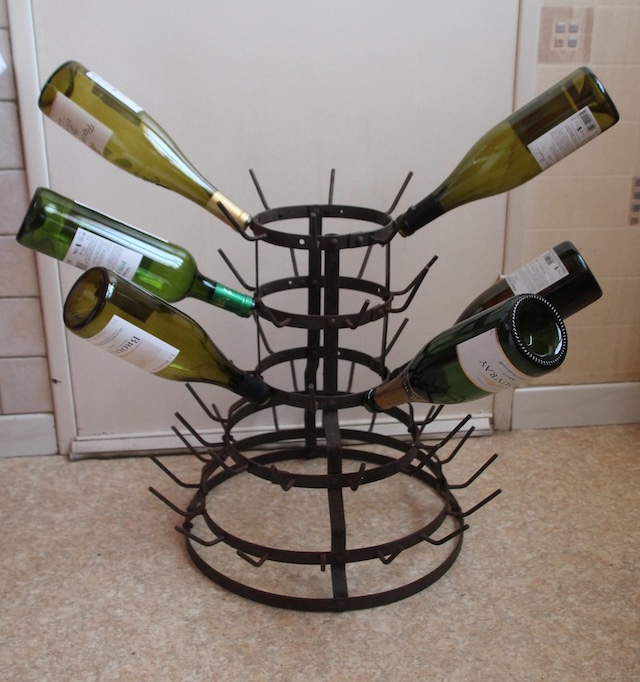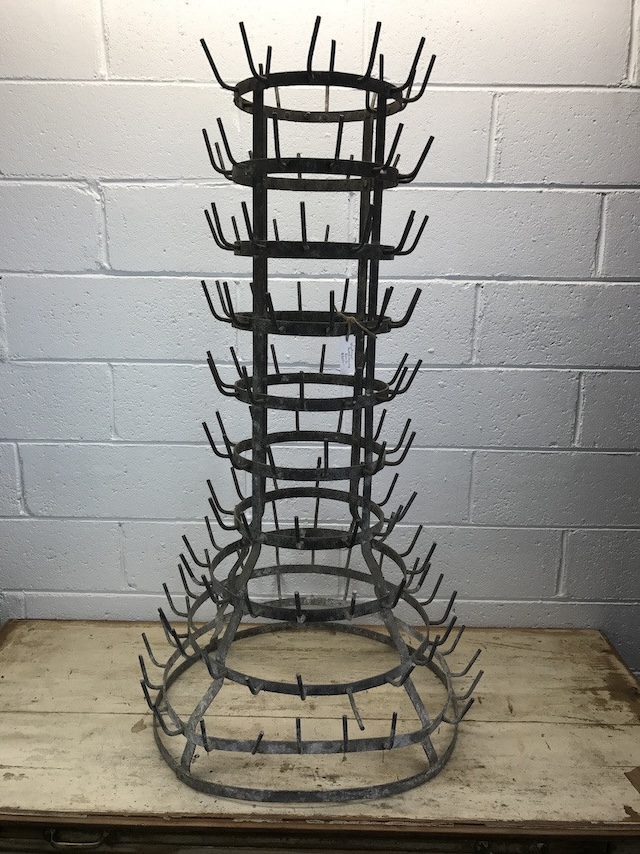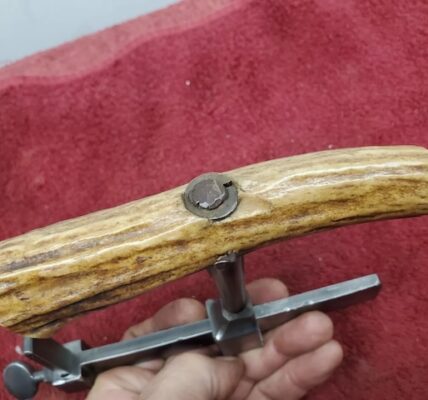The Fascinating Journey of the Vintage Bottle Drying Rack: From Practicality to Collectible-s1
Introduction: Rediscovering the Vintage Bottle Drying Rack
In a world where dishwashers and modern conveniences have become the norm, it’s hard to picture a time when even the simple task of drying bottles required a specialized tool. If you’ve ever encountered a peculiar, cage-like object used for drying bottles, you may be familiar with the vintage bottle drying rack. This once-essential kitchen and brewery accessory has an intriguing history that goes beyond its practical use. From revolutionizing daily tasks to becoming a sought-after collectible, the bottle drying rack holds a unique place in history. Let’s delve into the story of this fascinating tool and uncover how it shaped both domestic and commercial life.
What Is the Vintage Bottle Drying Rack?
The vintage bottle drying rack is a robust, metal contraption designed to dry bottles efficiently. Featuring circular rows of prongs, this tool was used to hold bottles upside-down after they were washed. The upside-down position allowed air to circulate inside the bottles, facilitating effective drying while preventing the growth of bacteria. Constructed from durable iron or steel, these racks were built to endure frequent use and exposure to water. Whether in a farm kitchen or a local brewery, this rack was indispensable in the era before plastic bottles became widespread.
The Historical Evolution of Bottle Drying Racks
The history of bottle drying racks is intertwined with the development of glass bottle production in the 19th and early 20th centuries. As the demand for preserving liquids like milk, beer, and wine grew, so did the necessity for efficient bottle cleaning and drying solutions. Originally, bottle drying racks were prominent in commercial settings such as breweries and dairies, where large volumes of bottles needed cleaning and drying daily.
With the rise of household bottle use for homemade beverages and pickling, smaller versions of these racks began appearing in homes. By the mid-20th century, bottle drying racks remained common in rural areas and Europe. However, as plastic containers and electric dishwashers became more prevalent, the need for these racks diminished, marking a shift in their use and significance.
The Impact of Bottle Drying Racks on Daily Life
Before the convenience of plastic and disposable packaging, glass bottles were crucial for storing various liquids. Drying these bottles properly was essential yet challenging, especially when dealing with multiple bottles. The bottle drying rack revolutionized this process by allowing numerous bottles to dry simultaneously in a compact space. This design not only saved time but also ensured that bottles were dried thoroughly from the inside out, preventing contamination.
For breweries, this tool was vital. Glass beer bottles, often reused, required thorough cleaning and drying before refilling. The bottle drying rack streamlined this process, enhancing efficiency in breweries and ensuring product quality. In household settings, especially those involved in fermenting beverages or preserving food, the rack proved invaluable. It simplified the drying of milk bottles and other glass containers, making the process more hygienic and less labor-intensive.
From Practical Utility to Vintage Charm
As the need for glass bottles waned with the rise of single-use plastics and dishwashers, the practical role of the bottle drying rack diminished. However, in recent years, these racks have experienced a resurgence as vintage collectibles. Their unique design and historical significance have attracted the attention of artists and collectors alike.
Famous artist Marcel Duchamp notably repurposed a bottle drying rack into one of his “readymade” sculptures in 1914, challenging traditional notions of art. This act transformed the rack from a mere kitchen tool into a symbol of avant-garde creativity. Today, vintage bottle drying racks are cherished as decorative items, often repurposed as rustic decor or unique wine racks.
Modern Uses and Collectibility
Even though the practical use of bottle drying racks has largely faded, their aesthetic appeal has gained popularity. Many people interested in sustainable living have returned to glass bottles, reviving the need for such racks. Additionally, the vintage design of these racks has become fashionable in modern kitchens and cafes. They are often used to hold wine bottles, coffee mugs, or even as planters, blending practicality with nostalgic charm.
The bottle drying rack’s journey from an everyday utility to a collectible artifact highlights its enduring appeal. It stands as a testament to a time when ingenuity and craftsmanship were integral to daily life. Whether used for its original purpose or as a decorative piece, the bottle drying rack continues to captivate those who appreciate its historical and artistic value.
Conclusion: A Symbol of Practical Innovation
The bottle drying rack may seem like a relic of the past, but its role in history reveals its significance in both domestic and commercial settings. Its efficient design revolutionized bottle cleaning and drying, making it an essential tool before the advent of modern conveniences. Today, it serves as both a collectible and a functional piece of art, symbolizing a bygone era of resourcefulness and practical innovation.
Have you ever used or seen a bottle drying rack? Share your experiences or thoughts in the comments below!









